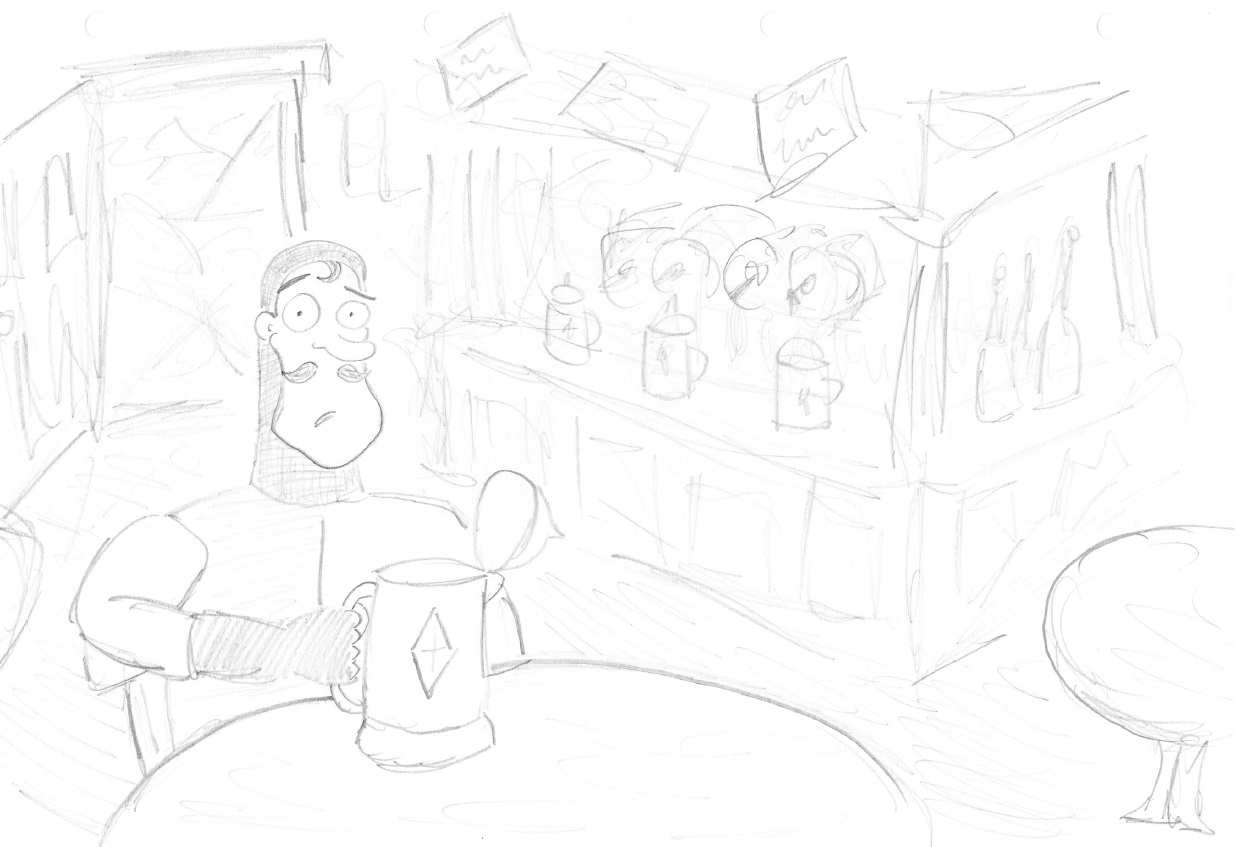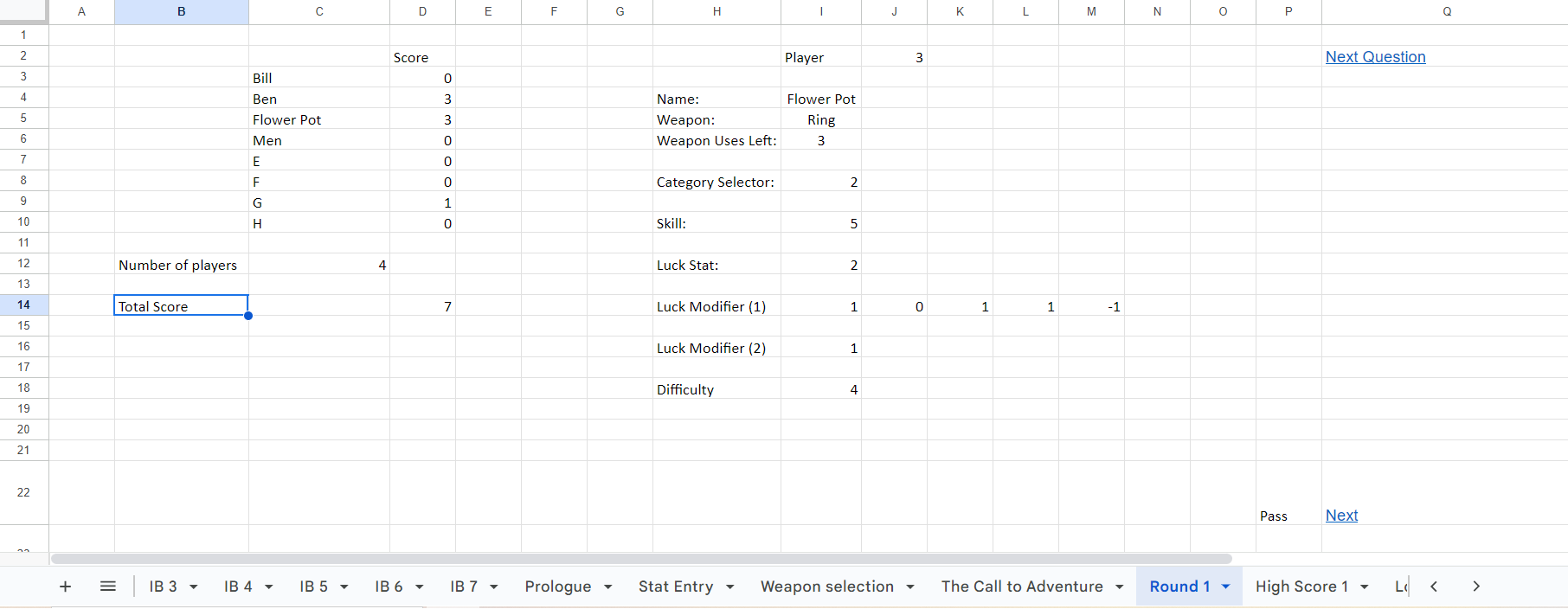Having decided to develop Quiz Quest as a game for remote team-building, I got to work writing a proper script with a broader appeal. A ‘sword and sorcery’ fantasy setting felt like the right choice as it is rich with character archetypes and story tropes that can be humorously adapted to incorporate quizzing. (Plus, it meant I could compose a grandiose orchestral soundtrack! Win win!) The script I wrote worked kind of like a play script with lines for me to perform as the various characters the players encountered and lines that the players themselves would be expected to speak as required. I included some variations in the script for certain encounters which would be determined by the players’ stats and weapon choices.

Individual player stats were something I wanted in the game from the very beginning along with weapons that could function both as power-ups when quizzing and as items for dealing with the more dangerous character interactions. (Nearly four years down the line we are only just getting these features implemented!) My idea was that each of the six stats would be linked to both a character trait and (unbeknownst to the players) to one of the six question categories. Originally, the traits had an effect on how the other characters perceived the players (eg. if the players were high in Wisdom they would be treated with respect by more intelligent characters) and the outcome of the players’ weapon uses (eg. if the players were high in Strength they would be certain to defeat a weak opponent). At the start of the game, each player would order their six stats based purely on the six character traits. Meanwhile, behind the scenes, each stat would also order the six question categories for each player, which would affect the category and difficulty of the questions they would receive. I wanted to keep the question category element of the stats a secret from the players because I wanted the players to feel more immersed in the world and the story instead of being focused on the quiz questions. I am still debating whether this is the right decision or not, as part of me thinks that many players will want to decide upfront which question categories they favour.

Once I had a first draft of the script, I moved on to creating the placeholder artwork using the drawing skills that I hadn’t employed since GCSE Art lessons. I then put this artwork into Powerpoint slides as an easy way to present the visuals during our proof-of-concept demonstrations for friends. Our original business model was that I would perform the script live whilst simultaneously moving between slides, cueing background music and keeping the scores. As for the scores, Michael had been busy converting the Excel scoring system I had made into a ‘Quizmaster Dashboard’ (image below) which incorporated the script and player stats (and a ‘Luck’ modifier, which was fun). This method of presentation worked reasonably well for the few demonstrations that we did, but ultimately we agreed that we needed to find a better way to deal with the juggling act of presenting and scoring, preferably one that didn’t rely on Powerpoint and Excel!
Enter Nate, our original developer…
